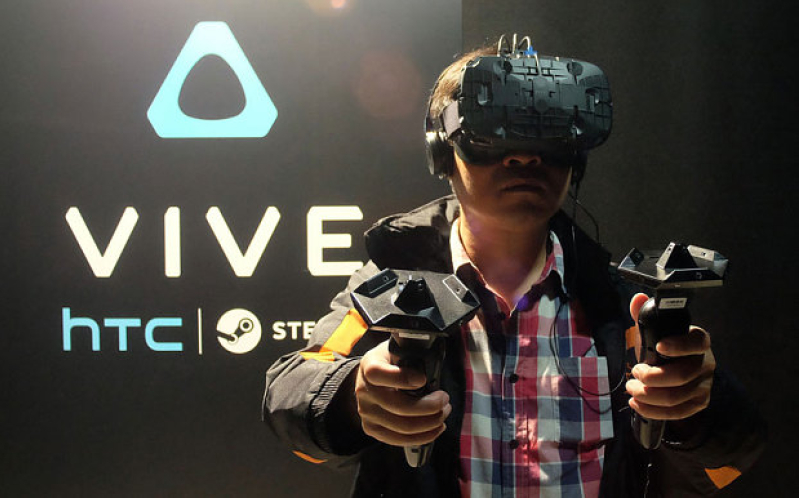
Taiwanese tech company HTC has revealed interesting details about their upcoming virtual reality headset at the CES tech show. HTC officials said gadget lovers should expect a "very big technological breakthrough." Here's what we so far about HTC Vive release date, price, specs and reviews.
The VR headset from HTC is set have a unique camera system that allows users to see objects in the physical room around them, helping to avoid collisions. The device is, by far, the most ambitious virtual reality platform, according to CNET. It gives wearers an awesome full-room VR experience. The headset can sense an entire room and let users wanders for about 16 feet diagonally.
Furthermore, by pressing a button on the headset, wearers can see objects near them in the virtual reality environment. The latest developer hardware is called HTC Vive Pre. Aside from zoom-in features, it can provide continuous updates on where everything is.
According to an article published in BBC, HTC plans to launch the Vive in April this year.
Here are some of the headset's improvements:
- lighter helmet
- Improved head strap to make them more comfortable to use
- Interchangeable foam inserts and "nose gaskets" to better fit the shape of the user's face
- clearer and brighter screen display
- Improvements on handheld controllers such as softer pads, grip edges and textured buttons
As for the price of HTC's VR headet, it is safe to assume that this kit will cost much more due to its added hardware. HTC CEO Cher Wang claimed that despite the device's hefty price, people would prefer more immersive feeling and satisfying user experience.
HTC and Valve are clearly committed to pushing the boundaries of virtual reality headsets into a space that's starting to feel almost like augmented reality, so expect the device will hit the market by storm.
Aside from HTC, other companies are also developing their own VR headsets. Oculus just recently started pre-orders for their Rift VR goggles last week. . Companies like Google and Samsung are also selling VR headsets that can be powered by phone, meaning they don't have to be tethered to a computer to work.
Tech experts said the competition in the virtual reality market is primed to be fierce this year.
"This is like a bunch of competitors, right at the starting line, eying each other just before the gun goes off," said Michael Goodman of Strategy Analytics.







